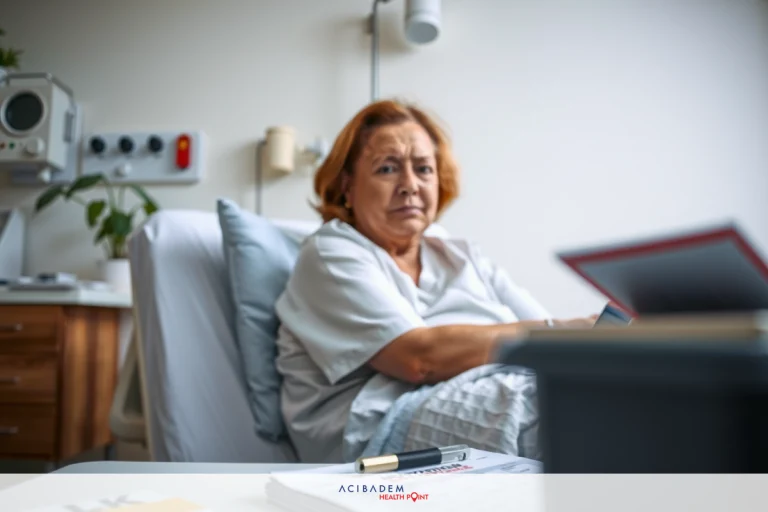Can You Vomit After Gastric Sleeve?
Can You Vomit After Gastric Sleeve? Gastric sleeve surgery is a widely used weight loss intervention that has assisted numerous individuals in attaining healthier lives. Like any surgical procedure, it comes with its share of potential side effects and complications. One of these potential side effects is postoperative vomiting, which could be a cause for concern among those considering the surgery.
Understanding the reasons for such occurrences and how to manage them can greatly enhance the recovery process. This article aims to provide an informative guide on what causes vomiting after gastric sleeve surgery, how to alleviate this symptom, and tips for a smoother recovery process. The goal is to arm prospective patients with knowledge so they can make informed decisions about their health.
Postoperative Vomiting: Causes and Solutions
Can You Vomit After Gastric Sleeve? Gastric sleeve surgery, also known as sleeve gastrectomy, is a surgical weight-loss procedure. It involves removing part of the stomach and creating a smaller, sleeve-shaped stomach. However, after the surgery, some patients may experience postoperative vomiting. The primary cause of this is typically overeating or consuming foods too quickly. The newly formed “sleeve” isn’t able to accommodate large quantities of food or rapid eating, which can lead to discomfort and ultimately vomiting.
Another common cause of postoperative vomiting is an inappropriate diet. After gastric sleeve surgery, patients are required to follow a specific diet that gradually reintroduces solid foods into their system. This diet starts off with liquids, then progresses to pureed foods, soft foods, and eventually regular foods. If a patient skips any of these stages or introduces certain types of food too early, it could trigger nausea and vomiting.
Can You Vomit After Gastric Sleeve? Besides overeating and dietary errors, physical complications can also lead to postoperative vomiting. For instance, if the newly created stomach ‘sleeve’ becomes too narrow (a condition known as stenosis), it may cause food to get stuck, leading to vomiting. Another physical complication could be leakage from the staple line used to create the new stomach pouch. These complications are less common but require immediate medical attention.
To alleviate the side effect of vomiting, it’s crucial to follow the prescribed postoperative diet religiously and avoid overeating or eating too quickly. Remaining hydrated is equally important but remember to avoid drinking fluids during meals as this can fill up your small stomach quickly leading to discomfort. If you suspect any physical complications like stenosis or leakage causing your vomiting, seek immediate medical help. In some cases, medication might be prescribed by your surgeon to control nausea and vomiting. Remember, every patient’s recovery journey is unique; what works for one might not work for another, so it’s essential to maintain open communication with your healthcare team throughout your recovery process.

Recovery Tips to Minimize Vomiting
Can You Vomit After Gastric Sleeve? Postoperative care and adherence to recommended dietary guidelines are pivotal in the recovery process after a gastric sleeve surgery. This not only ensures a smooth transition back to regular activities but also minimizes the chances of experiencing discomforting side effects such as vomiting. Here are some valuable tips that can assist in making your recovery period more comfortable and less likely to induce vomiting:
- Follow your postoperative diet closely: Your surgeon or nutritionist will provide you with a detailed diet plan. Make sure to stick to it diligently.
- Eat small, frequent meals: Instead of three large meals, aim for six small ones throughout the day. This can prevent overloading your smaller stomach.
- Chew thoroughly: Make sure to chew your food properly before swallowing. This aids digestion and lessens the strain on your stomach.
- Stay Hydrated: Drink plenty of fluids between meals, but avoid drinking during meals as it can fill up your stomach quickly and cause discomfort.
- Avoid trigger foods: Certain foods might be harder for your new stomach to digest – typically greasy, spicy, or overly sweet foods. Identify these triggers and steer clear of them.
- Exercise regularly: Mild physical activity like walking can aid digestion and speed up recovery.
- Rest well: Ensure you are getting adequate sleep as it is essential for healing and recovery.
- Keep follow-up appointments: Regular check-ins with your healthcare provider can help spot potential complications early and keep your recovery on track.
Remember, each person’s recovery journey is unique, so it’s important to listen to your body and communicate openly with your healthcare team about any concerns you may have.
Frequently Asked Questions
How long does postoperative vomiting typically last after gastric sleeve surgery?
Postoperative vomiting can vary from person to person. In most cases, it tends to subside within the first few weeks after surgery as your body adjusts to the changes. However, if vomiting persists or worsens, it is important to consult with your healthcare provider.
Can I take over-the-counter medications to manage postoperative vomiting?
It is always best to consult with your surgeon before taking any over-the-counter medications for vomiting. They can provide specific recommendations based on your individual circumstances and advise on suitable options that are safe and effective.
Is it normal to experience occasional episodes of vomiting during the recovery period?
Occasional episodes of vomiting can occur during the recovery period, especially if you have consumed food too quickly or failed to follow the recommended dietary guidelines. However, if you experience persistent or severe vomiting, contact your healthcare provider for further evaluation.
Can I prevent postoperative vomiting completely?
While it is not always possible to guarantee complete prevention of postoperative vomiting, following the prescribed postoperative diet and guidelines can significantly minimize the occurrence. It is essential to carefully adhere to the recommendations provided by your healthcare team to ensure a smoother recovery.
Are there any warning signs that indicate I should seek immediate medical attention for postoperative vomiting?
Yes, certain warning signs should prompt you to seek immediate medical attention. These include severe and uncontrollable vomiting, inability to keep any fluids down, signs of dehydration (such as excessive thirst and dark urine), intense abdominal pain, or any other concerning symptoms that you feel require urgent evaluation.











